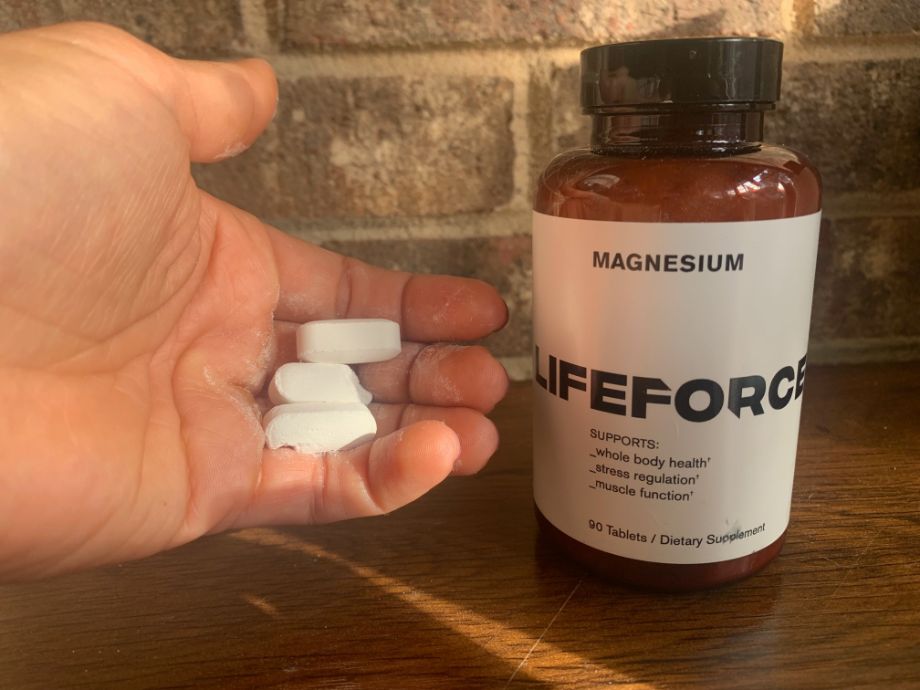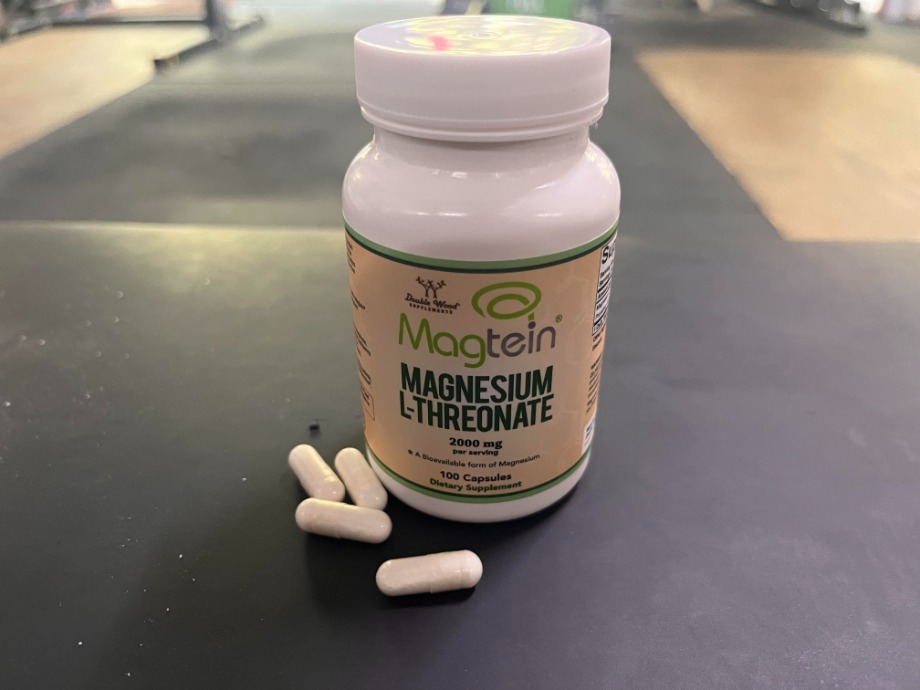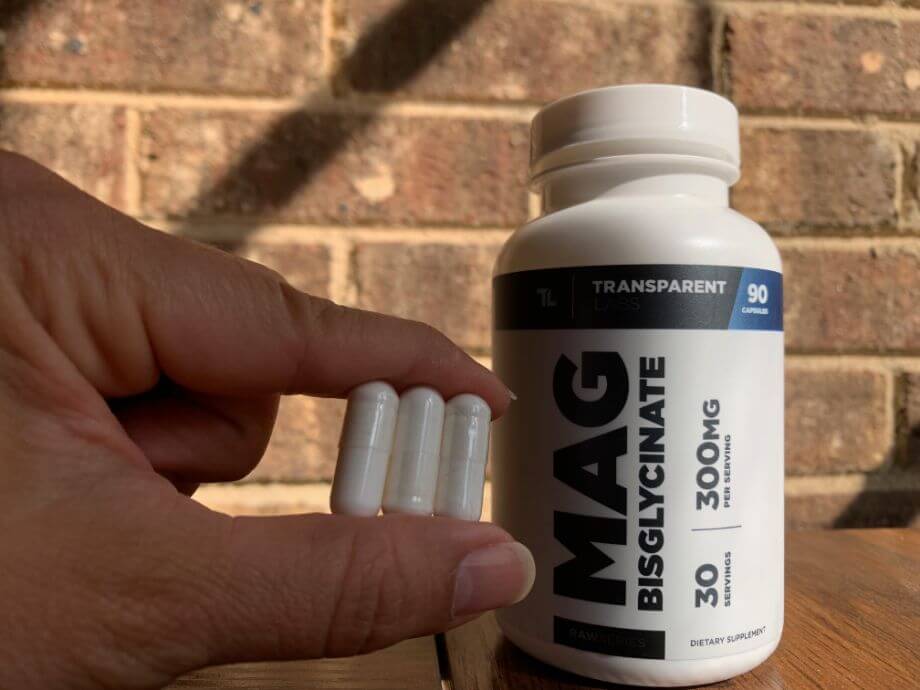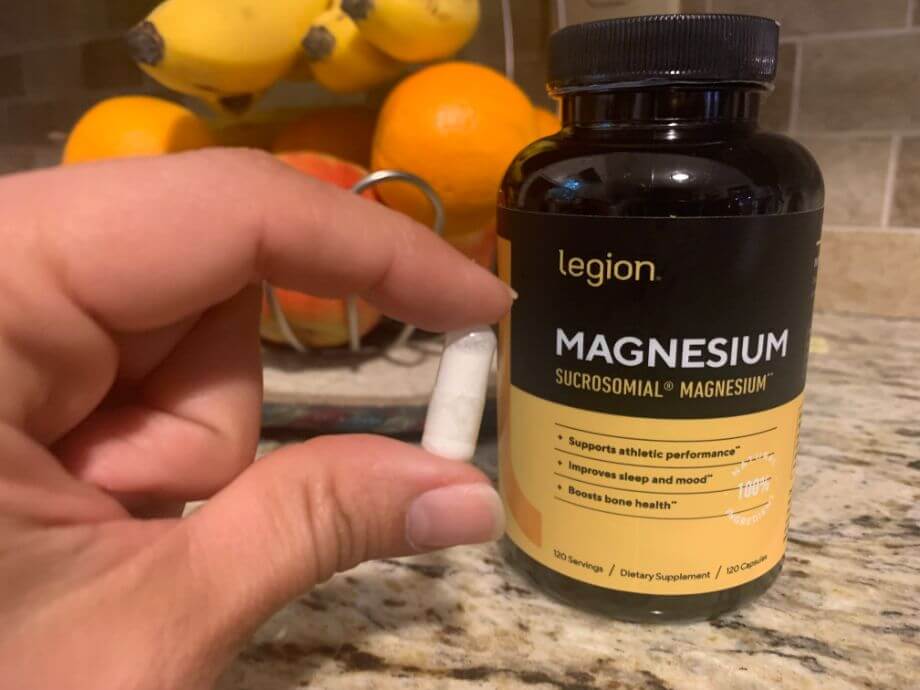We test and review fitness products based on an independent, multi-point methodology. If you use our links to purchase something, we may earn a commission. Read our disclosures.
When it comes to optimizing your health and fitness, many think of supplements as performance aids for the gym. The best pre-workouts can help provide energy for a tough workout, the best protein powders can help improve recovery, and creatine and BCAAs are popular choices for those trying to build muscle.
However, general health supplements are often overlooked. These vitamins and minerals are commonly used to provide specific nutrients your diet may be lacking, like vitamin D, omega-3s, electrolytes, and more. While most of these supplements are necessary and can be obtained through food sources, many find it difficult to reach adequate levels of certain minerals, like magnesium, with whole food sources. That’s where supplements can help fill in the gaps.
I’m a certified nutrition coach who’s spent years studying nutrition science and supplement research, and I’ve spent plenty of time studying magnesium. In this article, I’ll explore the benefits of magnesium, an essential mineral involved in hundreds of processes in the human body. I’ll also explain why you may want to consider magnesium supplements, the signs of magnesium deficiency, and how to consume more magnesium through whole-food sources.
Medical disclaimer: This article is intended for educational and informational purposes only. It is not intended as a substitute for medical advice. For health advice, contact a licensed healthcare provider.
What Is Magnesium?
Magnesium is an essential dietary mineral, which means your body requires it for a variety of functions and must obtain it through food or supplementation. It’s a cofactor in more than 300 enzyme systems1 that regulate vital functions in the body, meaning magnesium plays an important role in hundreds of processes in the body, including ATP production for energy, blood sugar control, protein synthesis, bone health, nervous system regulation, cardiovascular health, and many more1.

A 2018 study2 estimated that 60% of adults consume less than the recommended daily magnesium intake, and 45% are deficient in this critical mineral. It’s naturally found in certain foods, like dark leafy greens, but the diet quality of the average adult has suffered with the rise of processed foods and “fast” options.
Many symptoms can occur when you don’t have enough magnesium, which I’ll share later in this article. Supplementing with magnesium can be a great way to relieve these symptoms and improve your overall health and well-being if you’re unable to increase your magnesium levels through diet alone.
RELATED: The 10 Best Magnesium Supplements
Benefits of Magnesium
Considering most adults more than likely aren’t consuming enough magnesium, and it’s shown to be a safe supplement, there are quite a few benefits you may experience from using a magnesium supplement. I’m not going to cover all 300 processes that magnesium can impact, so here are the most common health benefits associated with using a supplement to address magnesium deficiency.
1. May Help Improve Heart Health
A 2021 meta-analysis3 published in Nutrients examined the results of 49 clinical trials exploring the impact of oral magnesium supplementation on blood pressure. It found that at high doses, magnesium may be able to reduce blood pressure, especially in those already using medications to control it.
An older randomized-controlled trial from 20094 published in the Journal of Human Hypertension found that magnesium supplementation significantly reduced systolic and diastolic blood pressure, but only in adults with low magnesium levels.
It certainly seems like addressing magnesium deficiency through supplementation may help support healthy blood pressure. But, if high blood pressure is a concern, you should always speak with a doctor about the proper treatment approach and if magnesium supplementation is right for you.
RELATED: Does Cardio Lower Blood Pressure?
2. May Help Improve Insulin Sensitivity
Insulin sensitivity refers to how well your body responds to elevated blood glucose and how efficiently it can stabilize blood sugar levels. It measures how responsive your cells are to insulin, the hormone that regulates blood glucose.

You want your cells to be responsive to insulin, or you’ll risk developing insulin resistance, a condition in which your body struggles to normalize blood sugar levels. Left untreated, insulin resistance can lead to metabolic syndrome5, non-alcoholic fatty liver disease, and type 2 diabetes.
Luckily, research shows that magnesium supplementation may help reduce blood glucose levels6 and improve insulin sensitivity, especially in those with diabetes or those at a higher risk of diabetes due to insulin resistance.
3. May Help Improve Mood
Improvements in your overall mood is another benefit that may only be noticeable if you’re addressing a magnesium deficiency, but if you’re deficient, supplementing with magnesium may have an impact on feelings of depression and anxiety.
A 2015 study published7 in the Journal of the American Board of Family Medicine found a strong correlation between magnesium deficiency and depression in younger adults. Other studies have found similar relationships between magnesium and mental health, like this 2020 paper8 on magnesium status and the stress cycle.
Low magnesium levels were associated with increased stress and anxiety, and chronic stress encouraged magnesium depletion. This results in a cycle that only worsens stress and anxiety while continuing to deplete magnesium stores. Supplementation may be useful to manage regular stress because obtaining adequate magnesium through whole foods can be difficult.

4. May Help Reduce Inflammation
Inflammation is a natural stress response, and in some cases, it can be a good thing, as inflammation can help with wound healing and muscle repair after a strenuous workout.
However, chronic inflammation throughout the entire body isn’t ideal, as it can increase the risk of a number of serious health conditions. This 2018 study9 from the Journal of Inflammation Research found that magnesium deficiency is strongly associated with chronic inflammation, which increases the risk of developing heart disease, high blood pressure, and diabetes.
5. May Help Improve Sleep
While the exact mechanism isn’t clear, magnesium seems to be useful for those who struggle to get quality sleep at night.
A 2022 study10 looked at data from 3,964 participants, and found that magnesium intake was associated with better sleep quality and sleep duration, with fewer instances of short sleep cycles. This may be due to a reduction in anxiety and depression, a reduction in blood pressure, or something else, but it seems to help.
This isn’t scientific evidence (or even close), but as someone who’s struggled with insomnia for years, magnesium makes a huge difference and helps me fall asleep when I use it in the evening. Additionally, many of my clients over the years have reported similar results.
Symptoms of Magnesium Deficiency
Most of the benefits listed result from addressing magnesium deficiency, which is quite common among adults. Not everyone who’s deficient will experience every symptom, but there are quite a few things you may notice.
We’ve already discussed how magnesium deficiency is associated with depression, inflammation, and insulin resistance. According to the National Institutes of Health, here are some of the most common symptoms you’ll notice if you don’t have adequate levels of magnesium1.
- Loss of appetite
- Nausea and vomiting
- Fatigue and weakness
- Numbness and tingling
- Muscle cramps
- Abnormal heart rhythms
- Personality changes
- Migraines
Of course, each of these may have different causes that you should discuss with your healthcare provider, but if they’re related to magnesium deficiency, supplementation may help.
Food Sources of Magnesium
As there are plenty of magnesium-rich foods to choose from, supplementation may not be necessary if you can maintain appropriate levels of magnesium through your diet alone.

Here are some foods naturally high in this important mineral worth adding to your diet:
- Green, leafy vegetables
- Nuts (cashews, almonds, chia seeds, peanuts)
- Pumpkin seeds
- Legumes (Black beans, chickpeas)
- Whole grains
- Milk and yogurt
- Dark chocolate
- Bananas
For more, check out our guide to the 12 foods high in magnesium. You can also work with a registered dietitian to help create a magnesium-rich meal plan.
Side Effects of Magnesium
According to the NIH1, too much magnesium from food shouldn’t cause any issues in healthy adults, as the kidneys flush out excess magnesium.
However, as supplements provide a concentrated dose, high doses of specific forms of magnesium may cause nausea, abdominal cramping, and diarrhea. Magnesium toxicity was only seen with very high doses, usually from laxatives and antacids containing magnesium, and may cause hypotension, stomach distress, and lethargy1.
Magnesium may also interact with certain medications, which is why you should always talk to your doctor before taking any supplements. Specifically, magnesium may interfere with bisphosphonates, antibiotics, diuretics, and proton pump inhibitors1.
How To Use Magnesium Supplements
If you’ve decided to give this supplement a try, you’ll need to figure out which type of magnesium you need (there are many forms) and make sure you’re taking the right amount of magnesium. Here’s what you need to know.
Types of Magnesium
When it comes to magnesium types, you need to consider the digestive impact.
Magnesium salts are generally the cheapest form and the most likely to cause digestive stress. In fact, certain forms of magnesium are specially sold and used as laxatives. The most common one is magnesium oxide, which is often used to treat constipation11.
Studies have found that magnesium citrate, magnesium glycinate, magnesium lactate, and magnesium chloride are all easier to absorb and digest1.
Recommended Dose
Dosing can vary based on your goals and current dietary intake. One study4 found that magnesium only reduced blood pressure when supplemented at high doses of 600 milligrams (mg) per day, but this is more than most people need.
The Recommended Dietary Allowance (RDA) can vary slightly based on age and gender but is usually around 300 to 400 mg of magnesium per day for adults1. This is the dose commonly seen in many dietary supplements.
Benefits of Magnesium: Final Thoughts
Magnesium is an important mineral that plays a role in over 300 enzymatic reactions in the human body. Over half of adults are deficient, and magnesium deficiency is associated with a long list of potential symptoms that may be relieved by using a magnesium supplement.
When deficient, using a supplement has been associated with a lower risk of cardiovascular disease, improved insulin resistance, reduced inflammation, and many other benefits.
If you’re not deficient, taking a magnesium supplement probably won’t help you very much; however,if you do notice symptoms of magnesium deficiency, it may be worth speaking to your healthcare provider to see if magnesium supplementation is appropriate for your needs.
Benefits of Magnesium: FAQs
What type of magnesium is best?
With magnesium, optimal digestion and avoiding an upset stomach are the most important factors for consideration. Research has shown that magnesium aspartate, citrate, lactate, and chloride are the easiest forms to absorb and digest1.
How much magnesium should I take?
Before using any dietary supplements, you should always speak with a healthcare provider to find the right intake of magnesium for your needs. That said, the RDA is generally around 300 to 400 milligrams (mg) per day for healthy adults.
Is it good to take magnesium every day?
Yes. Magnesium that’s used daily by the body and needs replenishment. It’s also an electrolyte lost through sweat along with sodium and potassium, so if you regularly sweat while exercising, magnesium supplementation may help restore you to proper hydration levels.
References
- Office of Dietary Supplements – Magnesium. (n.d.). https://ods.od.nih.gov/factsheets/Magnesium-HealthProfessional/
- Workinger, J. L., Doyle, R. P., & Bortz, J. (2018). Challenges in the Diagnosis of Magnesium Status. Nutrients, 10(9), 1202. https://doi.org/10.3390/nu10091202
- Rosanoff, A., Costello, R. B., & Johnson, G. H. (2021). Effectively Prescribing Oral Magnesium Therapy for Hypertension: A Categorized Systematic Review of 49 Clinical Trials. Nutrients, 13(1), 195. https://doi.org/10.3390/nu13010195
- Guerrero-Romero, F., & Rodríguez-Morán, M. (2009). The effect of lowering blood pressure by magnesium supplementation in diabetic hypertensive adults with low serum magnesium levels: a randomized, double-blind, placebo-controlled clinical trial. Journal of human hypertension, 23(4), 245–251. https://doi.org/10.1038/jhh.2008.129
- Freeman, A. M., Acevedo, L. A., & Pennings, N. (2023). Insulin Resistance. In StatPearls. StatPearls Publishing.
- Veronese, N., Dominguez, L. J., Pizzol, D., Demurtas, J., Smith, L., & Barbagallo, M. (2021). Oral Magnesium Supplementation for Treating Glucose Metabolism Parameters in People with or at Risk of Diabetes: A Systematic Review and Meta-Analysis of Double-Blind Randomized Controlled Trials. Nutrients, 13(11), 4074. https://doi.org/10.3390/nu13114074
- Pickering, G., Mazur, A., Trousselard, M., Bienkowski, P., Yaltsewa, N., Amessou, M., Noah, L., & Pouteau, E. (2020). Magnesium Status and Stress: The Vicious Circle Concept Revisited. Nutrients, 12(12), 3672. https://doi.org/10.3390/nu12123672
- Pickering, G., Mazur, A., Trousselard, M., Bienkowski, P., Yaltsewa, N., Amessou, M., Noah, L., & Pouteau, E. (2020). Magnesium Status and Stress: The Vicious Circle Concept Revisited. Nutrients, 12(12), 3672. https://doi.org/10.3390/nu12123672
- Nielsen F. H. (2018). Magnesium deficiency and increased inflammation: current perspectives. Journal of inflammation research, 11, 25–34. https://doi.org/10.2147/JIR.S136742
- Zhang, Y., Chen, C., Lu, L., Knutson, K. L., Carnethon, M. R., Fly, A. D., Luo, J., Haas, D. M., Shikany, J. M., & Kahe, K. (2022). Association of magnesium intake with sleep duration and sleep quality: findings from the CARDIA study. Sleep, 45(4), zsab276. https://doi.org/10.1093/sleep/zsab276
- Mori, H., Tack, J., & Suzuki, H. (2021). Magnesium Oxide in Constipation. Nutrients, 13(2), 421. https://doi.org/10.3390/nu13020421
Further reading

Our Pre Lab Pro review considers ingredients, taste, first-hand experience, and price per serving to help you decide if this is the pre-workout for you. Read more

After sweating through dozens of workouts, our fitness experts are ready to bring you our top picks for the best sauna suits on the market today. Read more

Be your floor’s hero by purchasing the best treadmill mat to prevent scratches, scraps, and dings. Read more

Need help deciding how to choose an exercise bike? We’ve got you covered with all you need to know. Read more

